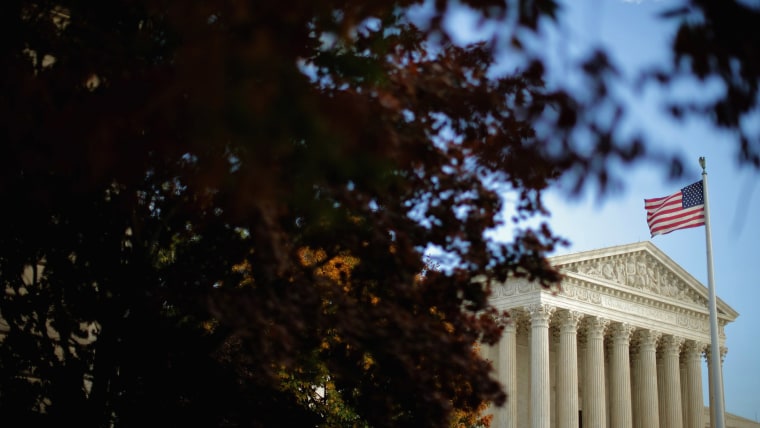As things stand, three Republican senators -- Richard Burr (N.C.), Ted Cruz (Texas), and John McCain (Ariz.) -- have publicly suggested that they're prepared to block any of Hillary Clinton's Supreme Court nominees, should she win the presidency. The GOP's unprecedented court blockade, already imposed on President Obama's nominee since March, would continue until 2021 at the earliest.It's a radical posture that raises all kinds of questions, not the least of which is, will other Republican senators join them?The Guardian asked Sen. Marco Rubio (R-Fla.) whether he, too, is comfortable with the idea of an indefinite blockade.
"No, I don't believe that we should do that if they propose nominees that are good," Rubio, who ran unsuccessfully for the Republican presidential nomination, said in an interview last week. "I'm not going to go and predispose them that way."Rubio's response came with the caveat, however, that he found it unlikely Clinton would nominate an individual who shared his view of the role of the court."If it's someone good who understands that their job is to apply the constitution, according to its original intent, then that will be a welcome surprise," he said. "But barring whether it's Republican or a Democrat, if they appoint someone who I believe doesn't meet that standard I'll oppose that nominee."
That's not much of an answer. Rubio appears to have reservations about a blockade in principle, but in practice, the far-right Floridian is prepared to reject any Supreme Court nominee who doesn't share his legal ideology, regardless of other considerations.In other words, if Clinton wins and nominates a qualified center-left jurist, Rubio would stand alongside Burr, Cruz, and McCain. At a debate the other day, Sen. Rand Paul (R-Ky.) adopted a similar posture. [Update: Senate Majority Whip John Cornyn dodged a question about this yesterday, saying he didn't want to speculate.]Let's not miss the forest for the trees here: the fact that this is even a question is a striking development. In recent memory, no one thought to ask senators, "Would you be willing to confirm a qualified Supreme Court justice?" because the question seemed wholly unnecessary. It'd be like asking them, "Are you willing to wear shoes on the Senate floor?" We ought to be able to safely guess the answer in advance.But the radicalization of Republican politics has meant the abandonment of all kinds of norms that Americans safely took for granted until quite recently.Postscript: Let's note for context that this speculation focuses on the possibility of a Clinton presidency working alongside a GOP-led Senate. If Democrats take the Senate majority, the more likely scenario is Republicans trying to filibuster any Clinton court nominee, and Dems doing away with that option.
